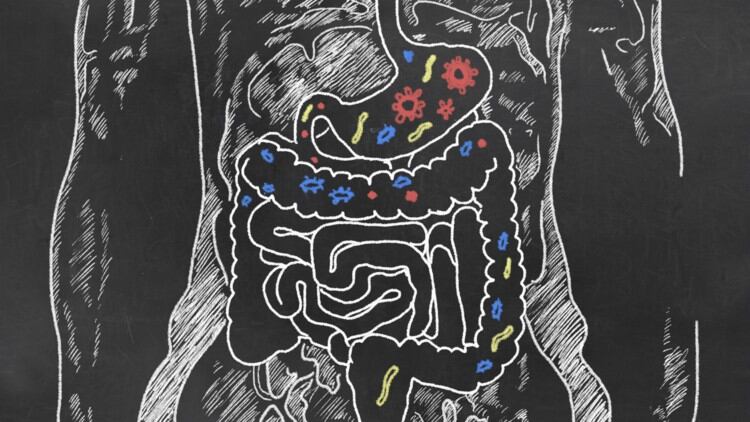Writing in the journal Nutrients, the team note that while composition of our gut microbiome is unique to each person and tends to remain relatively stable throughout our lives, daily transient fluctuations are observed.
“Diet is a key modifiable factor influencing the composition of the gut microbiota, indicating the potential for therapeutic dietary strategies to manipulate microbial diversity, composition, and stability,” wrote the authors, led by senior author Caroline Le Roy from Kings College London.
“While diet can induce a shift in the gut microbiota, these changes appear to be temporary,” said the team.
Le Roy and colleagues warned, however, that permanent rather than transient changes to our core gut microbiota are likely to be required for long-term impacts on our health.
“Whether prolonged dietary changes can induce permanent alterations in the gut microbiota is unknown, mainly due to a lack of long-term human dietary interventions, or long-term follow-ups of short-term dietary interventions,” they said.
Rapid (but transient) responses
The team noted that there is good evidence to show that while our core bacterial taxa are resilient to most temporary outside influences, the gut microbial community “as a whole displays a high inter-individual day-to-day variability.”
They add that our gut microbes are ‘extensively and regularly’ purged and can double in number within one hour.
“Within 24–48 h of a dietary intervention rapid changes are thought to be made to the microbial composition on a species and family level (but not phyla),” said the team.
“Significant microbial changes have been noted amongst only a limited number of bacterial taxa during short periods of dietary interventions,” they noted.
“In humans, there are rapid but transient changes in the gut microbiota in response to a dietary intervention particularly in the first 24-h period.”
However, enterotypes, the distinct bacterial groupings of the core microbial profile, are thought to remain stable throughout an intervention, according to several dietary studies.
“Collectively, studies show that alterations made in diet can have a significant and meaningful effect on the gut microbiota, primarily influenced by fibre from fruits, vegetables and other plant foods. However, in short-term interventions, faecal analyses are typically taken during the study period and not afterwards,” said Le Roy and colleagues.
They warn that this ‘hampers our understanding’ of the duration of an association between the gut microbiome and diet.
Lack of long-term effects?
While there is accumulating evidence to suggest that long-term diet is a primary driver of gut microbiome composition, most of these observations are from cross-sectional studies, said the authors.
Indeed, they noted that multiple reports demonstrate that it is in the first three years of life that diet – together with other factors – appears to have the greatest impact on the ecology of our gut bacteria.
“By three years of age, a more stable and adult-like microbial signature is thought to have been established with greater resistance to perturbations,” they said – adding that more recent evidence does also suggest that our guts may undergo more prolonged development past early childhood, with bacterial diversity of children aged six to twelve year olds known to be greater than those of healthy adults.
“Despite a tendency for microbial stability in adulthood, nutrient quality and quantity may still impact and derail the gut microbiota,” wrote Le Roy her and colleagues – noting that habitual diet has been shown to be associated with a distinct compositional enterotype, while short-term dietary intake has not.
“Our understanding of the duration required for a dietary intervention to have an enduring impact on the gut microbiota, and consequently health, is hampered by several limitations,” they added.
There is a distinct lack of long-term human studies, or even follow-up data from previous short term studies of short-term dietary interventions, they warned.
Furthermore, a number of studies suggest that our microbiome may be responsive or non-responsive to a particular dietary intervention based on the presence or absence of particular bacteria – for example fibre-degrading – within their core microbial population.
This can result in mixed outcomes for studies, the King’s College researchers noted – adding that an inter-generational decrease in fibre has also been shown to lead to a reduction or extinction of certain fibre-degrading bacteria in mouse models.
Finally, they noted that traditionally research has focused on the study of broad dietary indices or single and combined nutrients rather than foods within the context of specific dietary patterns.
“These approaches fail to acknowledge the synergistic effect within food matrixes.”
“Capturing the complexity of diet itself remains a challenge that is not yet close to being overcome.”
The future is personal
Le Roy and colleagues warned that present knowledge of how our dietary habits impact our gut microbiome in the long-term is limited both by the lack of long-term dietary studies and interventions with multiple faecal sample timepoints and post-intervention follow-ups.
Additionally, they reiterated that heterogeneity of research outcomes has impeded further insight into these diet–microbiota relations, ‘likely due to personalised responses of the host microbiota.’
They said that stratifying study participants into ‘responders’ and ‘non-responders’ based on their baseline microbial profile may improve future research outcomes.
“The wide range of individual microbial profiles should be acknowledged in order to explore personalised therapeutic strategies,” they concluded.
Source: Nutrients
Volume 11, Issue 12, doi: 10.3390/nu11122862
“Effect of Diet on the Gut Microbiota: Rethinking Intervention Duration”
Authors: Emily R Leeming, Abigail J Johnson, Tim D Spector, Caroline I Le Roy

